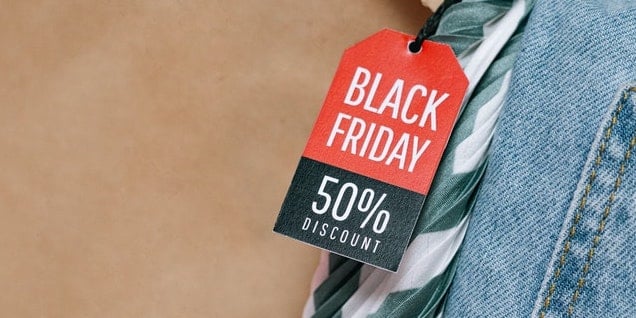
Many consumers weren’t happy with Black Friday sales. Here’s what you can do.

The day that started it all, Black Friday will always have a special place in Quikly’s heart and history. Unfortunately, not everyone has the same warm feelings towards the shopping holiday as of late.
Consumers’ feelings about Black Friday
Fresh off the heels of the 2021 holiday, Americans have stuffed their stomachs, scored some deals, and made their way back to their regularly scheduled work week. They’ve also had a lot of time to think.
Many consumers have taken to their social media platforms expressing feelings that the special day isn’t what it used to be. Concerns have been raised about the strength of Black Friday deals this year and whether consumers were truly offered good discounts.
When most of the hype around the post-Thanksgiving holiday is contingent on get-out-of-bed-early worthy deals, this is a major hiccup for businesses trying to capitalize on the shopping season staple.
Consumer disdain toward modern Black Friday methods are spilling over into other marketing issues plaguing brands, like consumer inundation. Customers are solely interested in communications that will make their shopping experience more enjoyable and contacting them about deals that they view as less than satisfactory will only make matters worse.
Consumers' feelings that Black Friday has lost its charm aren’t new. The holiday has seen its fair share of changes over the years with the introduction of online shopping, digital interpretations like Amazon Prime Day and the ongoing pandemic.
Huge mark-offs are also no longer reserved for the day after Thanksgiving, instead starting months earlier for some brands and lasting until Cyber Monday. What once required consumers to camp out in front of stores and compete to get the best products, has turned into a more organized and convenient method of scoring good discounts.
Online sales vs. foot traffic
Despite the Internet having been around for countless years, online shopping reached new heights thanks to the COVID-19 pandemic. Many consumers looking to make purchases chose to do so in safe, socially distant ways, and oftentimes, that meant paying e-commerce businesses a visit.
Less trips were made to the store and many brands were unsure of what to expect in the months and years to come.
Black Friday 2021 answered many questions about this holiday shopping season, some in ways that marketers and consumers might not have expected.
Something of an anomaly, Black Friday 2021 saw more in-person activity than in the last few years. The changes don’t stop there. An even more surprising change occurred: Online sales dropped.
The pandemic had a lot to do with the change as consumers welcomed the opportunity to physically participate in Black Friday this year, a luxury many didn’t have in 2020. The anticipation of returning to “normal life” and shopping in-person again fueled much of the desire to see what brick-and-mortar stores had to offer.
Albeit good news, it’s temporary. The love for the internet isn’t going anywhere nor is consumers’ need for convenience. So, what can be done to retain purchase momentum when hype from the prolonged shopping experience dies down? The answer is simple: human psychology.
Black Friday and human psychology
While customer expectations may have evolved over the years, the basic fundamentals of brain science have remained the same. Customers still experience feelings of anticipation before an upcoming event, fear over potentially missing out on something exciting, and influence from other humans who are participating in worthwhile activities.
It’s part of what made Black Friday so special in the first place. Consumers could look forward to the one day, big blowout sale that was sure to save them lots of money just in time for the holidays.
Recreating this experience is key in making sure your brand doesn’t suffer from consumer thoughts around the death of Black Friday. You can still use the psychology that remains ingrained in the minds of consumers. Doing so will show your audience that you have an understanding of what they’re looking for from your brand and that you truly know how to best serve them.
Changes in technology and consumers’ shopping habits may have created some obstacles for marketers, but incorporating psychology into your marketing strategies can help you benefit from the original design of Black Friday while creating a more elevated version that is received positively by your target audience.
Black Friday, along with the brands and customers who engage in the holiday, has changed over the years. Keeping up with the times means implementing innovative marketing strategies and catering to consumers.

Lindsay Keener is a brand journalist for Quikly. She covers stories that help to inform and educate consumer-facing marketers.
